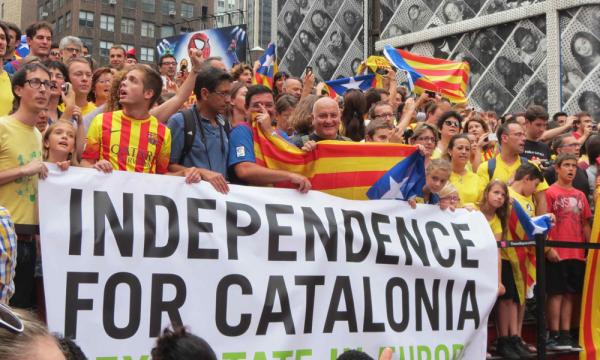There was chaos in Spain when the Catalonian independence referendum took place. Spanish riot police clashed with those determined to vote. The football club FC Barcelona locked thousands of fans out of the Nou Camp while they played a league match against Las Palmas, as a sign of protest after their request to postpone it in view of the poll was rejected.
It seems Catalans have to pay a high price for their bid to break away, in damage to property and to human bodies, and in the curtailing of economic activity.
The question is, why was the referendum so important?
I was in Spain on vacation last summer. The trip began in Madrid, followed by Granada, Cordoba and ended in Barcelona. As a diehard fan of FC Barcelona, I was interested in staying longer on La Rambla, one of the most attractive tourist places in the Catalonian capital.
Indeed, the tour gave me a different view of Spain as a country and of Catalonia as a part of Spanish territory.
Barcelona is a modern and developed city, buzzing with business and tourist activities that generate economic prosperity.
The Port of Barcelona is thousands of years old, and is of great commercial importance in the Mediterranean. It is certainly one reason why the city is one of the largest contributors to the Spanish economy.
The Catalan parliament on Sept 6 officially approved the referendum on the secession of Catalonia, but the bid for independence is not a new development.
If we look at history, the Catalan struggle for independence started in the Middle Ages, when the area was conquered by the Visigoths for almost two and half centuries. In 718, it came under Muslim control and become part of Al-Andalus, a province of the Umayyad caliphate.
As the Al-Andalus empire fell, Catalonia became a part of the rising Aragon-Castile kingdom ruled by Queen Isabella I, a state that lasted until the 18th century.
Things worsened in the modern era, when under Franco’s rule in 1939, all public activities associated with Catalan nationalism, including institutions of self-government and books, were banned.
This created the fierce political rivalry that became known as “El Clasico” between Madrid, viewed as representing Franco’s nationalism, and Barcelona, viewed as representing Catalan independence.
The rivalry is still strong today, as witnessed in the football matches between Barcelona and Real Madrid, and the call for independence is inevitable as Catalans believe they can finally be self-sustaining without need of Spain.
But the call is not uncommon, if one counts the cases of Timor Leste, South Sudan and even Singapore, all of which succeeded in their claims for independence.


